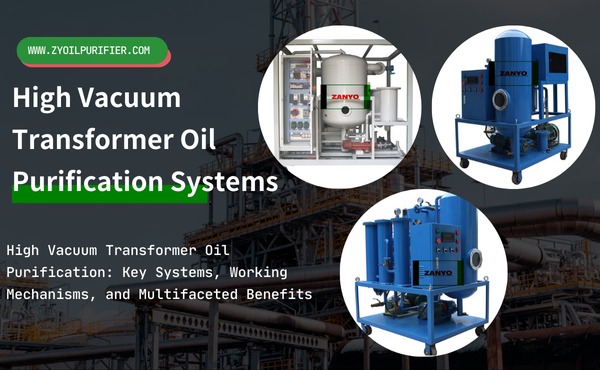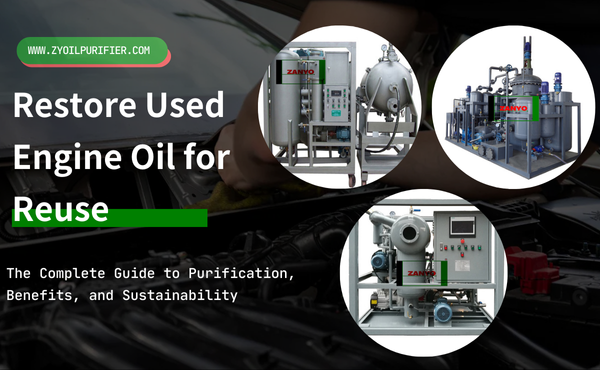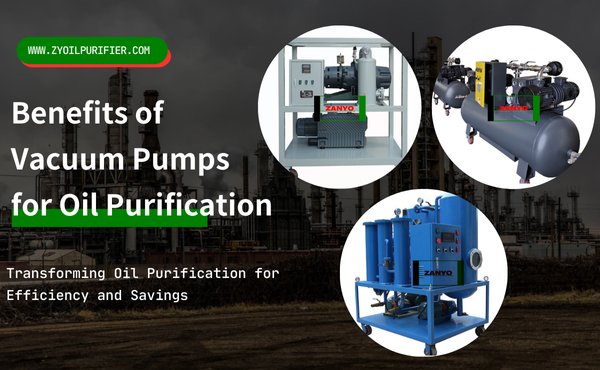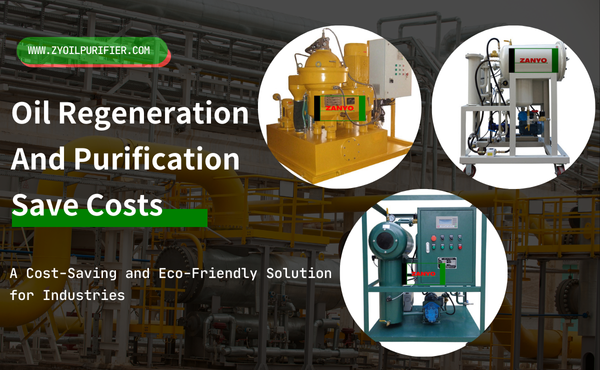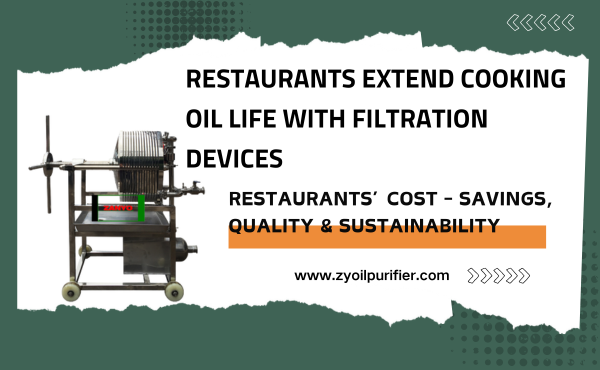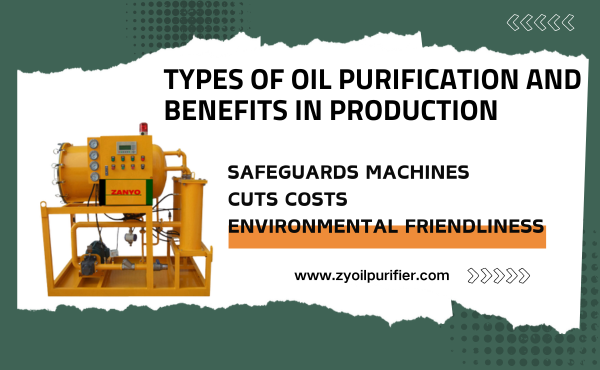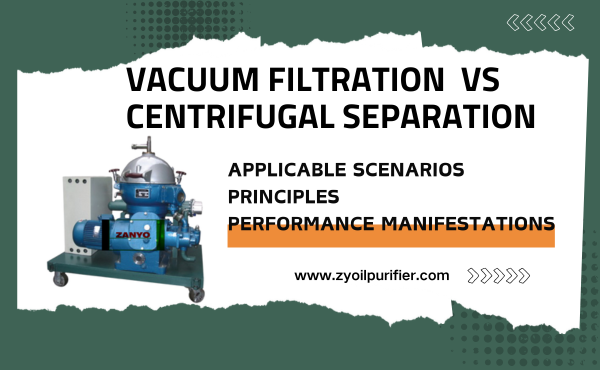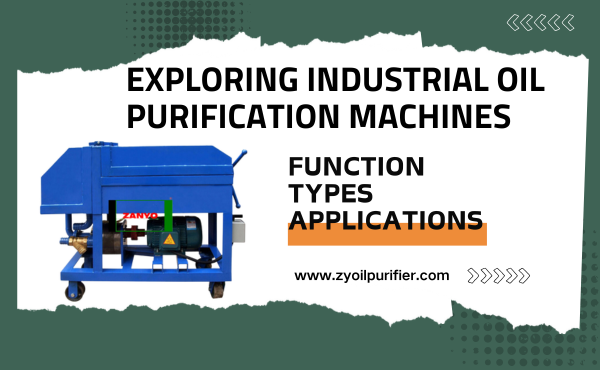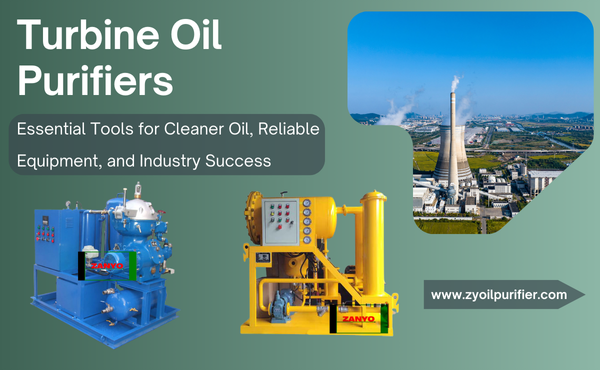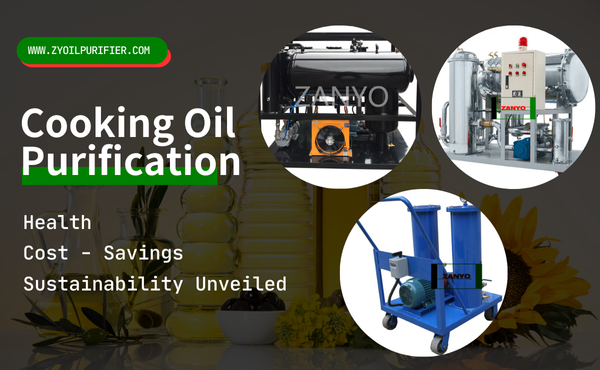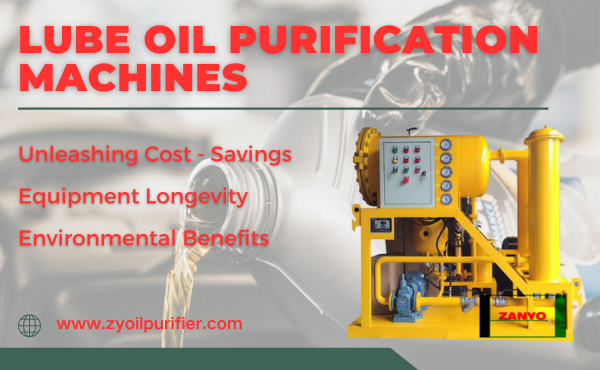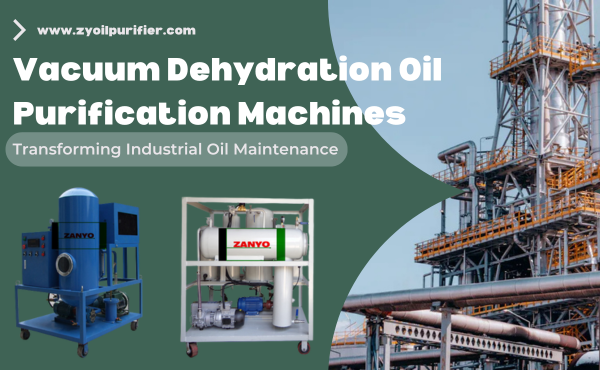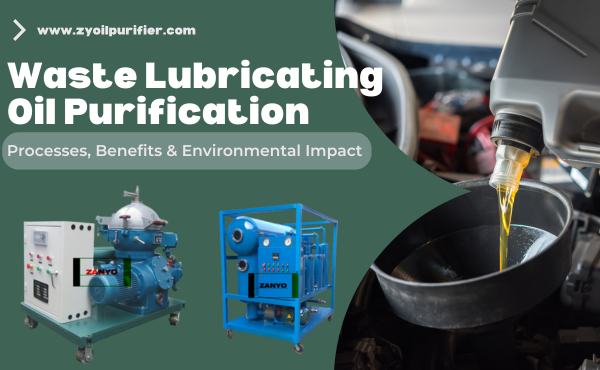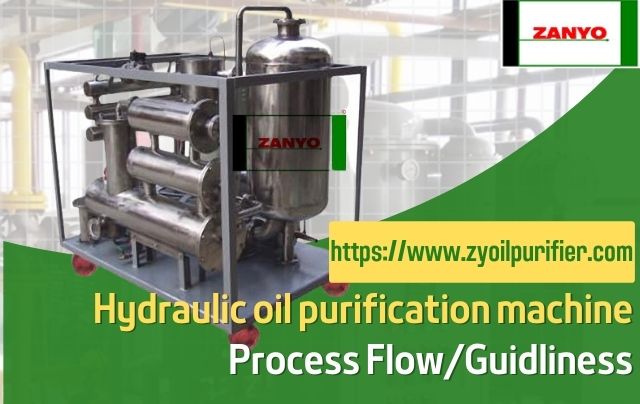Oil purification systems play a vital role in keeping ships operational. These systems remove contaminants, water, and sludge from oil, preventing engine damage. They also save costs by extending oil-drain intervals from 250 to 2,000 hours, reducing oil consumption by 400 gallons per ship, and cutting expenses by $5,000 per vessel.
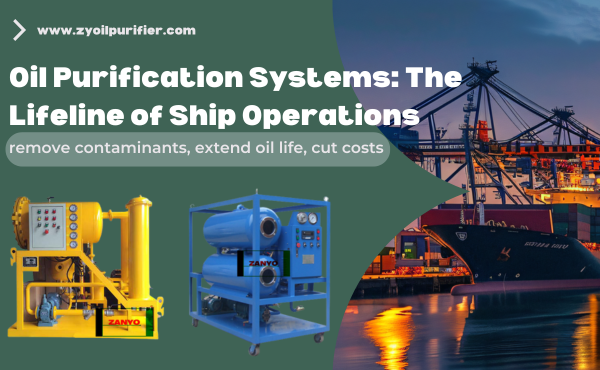
Key Takeaways
- Oil cleaning systems remove dirt, water, and sludge from engine oil. This stops engine damage.
- These systems let oil last longer, from 250 to 2,000 hours. This can save up to $5,000 for each ship.
- Using oil cleaning systems helps follow environmental rules. It lowers harmful waste and keeps oceans safe.
The Role of Oil Purification Systems
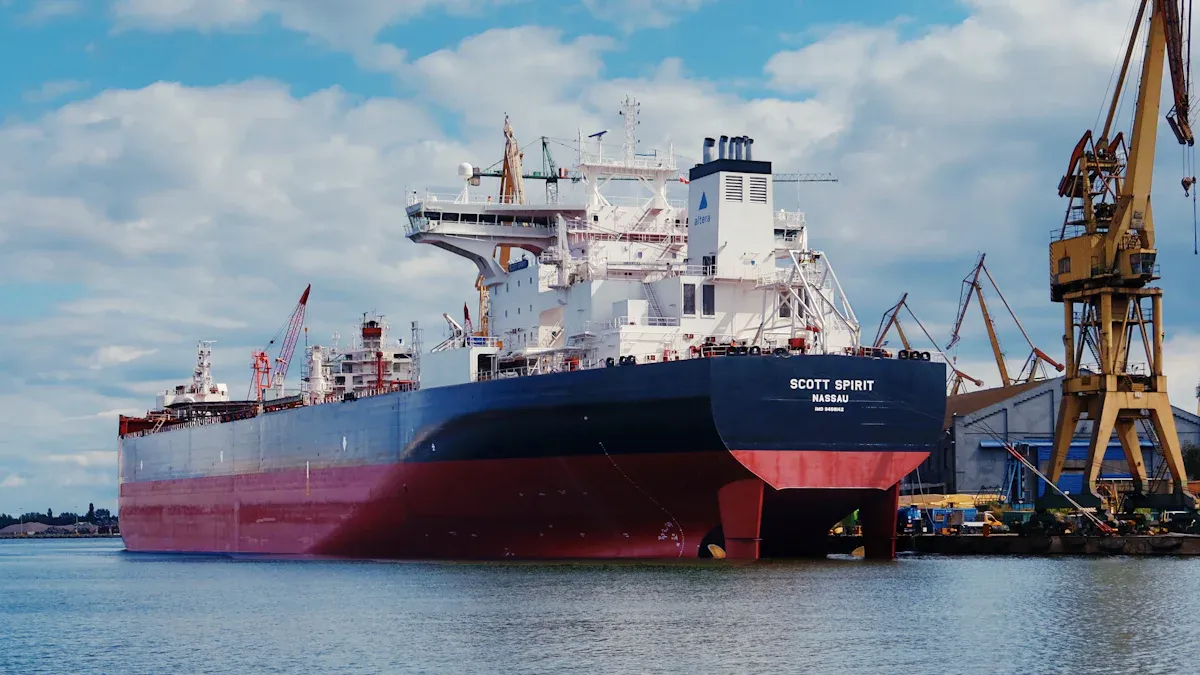
What Oil Purification Systems Do
Oil purification systems are designed to keep your ship’s engine oil clean and efficient. These systems remove harmful contaminants like dirt, water, and sludge that accumulate during engine operation. By doing so, they ensure the oil maintains its lubricating properties, which is critical for engine performance.
You’ll find that these systems also extend the life of your engine oil. Instead of frequent oil changes, you can rely on purification to maintain oil quality over longer intervals. This reduces waste and saves money. For example, ZANYO’s Oil Purifier helps ships achieve cleaner oil, leading to fewer maintenance interruptions and improved operational efficiency.
How Oil Purification Systems Work
Oil purification systems use advanced methods to separate contaminants from the oil. Here’s a breakdown of the key processes:
| Method | Description |
|---|---|
| Centrifugation | High-speed centrifugal force separates contaminants based on density. |
| Filtration | Oil passes through filters to trap solid particles. |
| Coalescence | Small water droplets combine into larger ones, making them easier to remove from the oil. |
Each method plays a unique role in ensuring your engine oil stays clean. For instance:
- Centrifugal oil separators efficiently remove soot and other particles. They collect debris on a removable insert, making cleaning simple and cost-effective.
- Bypass oil filtration eliminates nearly all contaminants without disrupting engine operation. This process removes even the smallest particles, ensuring cleaner oil and longer drain intervals.
By combining these techniques, oil purification systems deliver a continual cleaning process. This keeps your engine oil in optimal condition, reducing wear and tear on critical components.
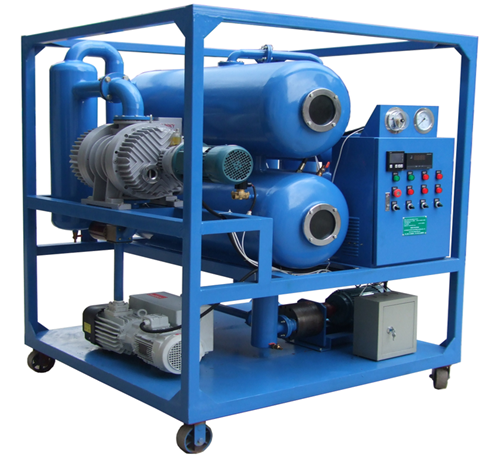
Transformer Oil Filtration Machine
Benefits of Oil Purification Systems
Prolonging Engine Life
Oil purification systems play a crucial role in extending the lifespan of your ship’s engine. Contaminants like dirt, water, and sludge can cause significant wear and tear on engine components. By removing these impurities, these systems ensure that the oil retains its lubricating properties, reducing friction and preventing damage. Clean oil minimizes the risk of corrosion and overheating, which are common causes of engine failure.
Using ZANYO’s Oil Purifier, you can achieve cleaner oil, which helps hydraulic components last up to ten times longer. This not only reduces the frequency of repairs but also lowers the overall maintenance costs. Prolonging engine life means fewer disruptions to operations and more reliable performance at sea.
Enhancing Fuel Efficiency
Efficient fuel usage is vital for reducing operational costs and environmental impact. Oil purification systems contribute to this by maintaining the quality of the oil, which ensures optimal engine performance. A well-maintained engine consumes less fuel, saving you money and resources.
For instance:
- A waste heat recovery system on a container vessel can save approximately 100 tonnes of fuel oil annually.
- This translates to a reduction of about 300 tonnes in CO2 emissions each year.
- Operators using heavy fuel oil (HFO) can save up to USD 60,000 annually.
By integrating oil purification systems into your ship’s operations, you not only enhance fuel efficiency but also contribute to a greener maritime industry.
Ensuring Environmental Compliance
Maritime regulations demand strict adherence to environmental standards. Oil purification systems help you meet these requirements by reducing hazardous waste and preventing oil contamination in the ocean. Improper disposal of used oil can lead to severe penalties and environmental damage.
These systems drastically cut hazardous waste production by enabling the reuse of oil. This reduces the need for frequent oil changes and minimizes the risk of spills. With ZANYO’s advanced technology, you can ensure compliance with international maritime standards while protecting marine ecosystems.
By investing in oil purification systems, you demonstrate a commitment to sustainability and responsible shipping practices.
Consequences of Neglecting Oil Purification Systems
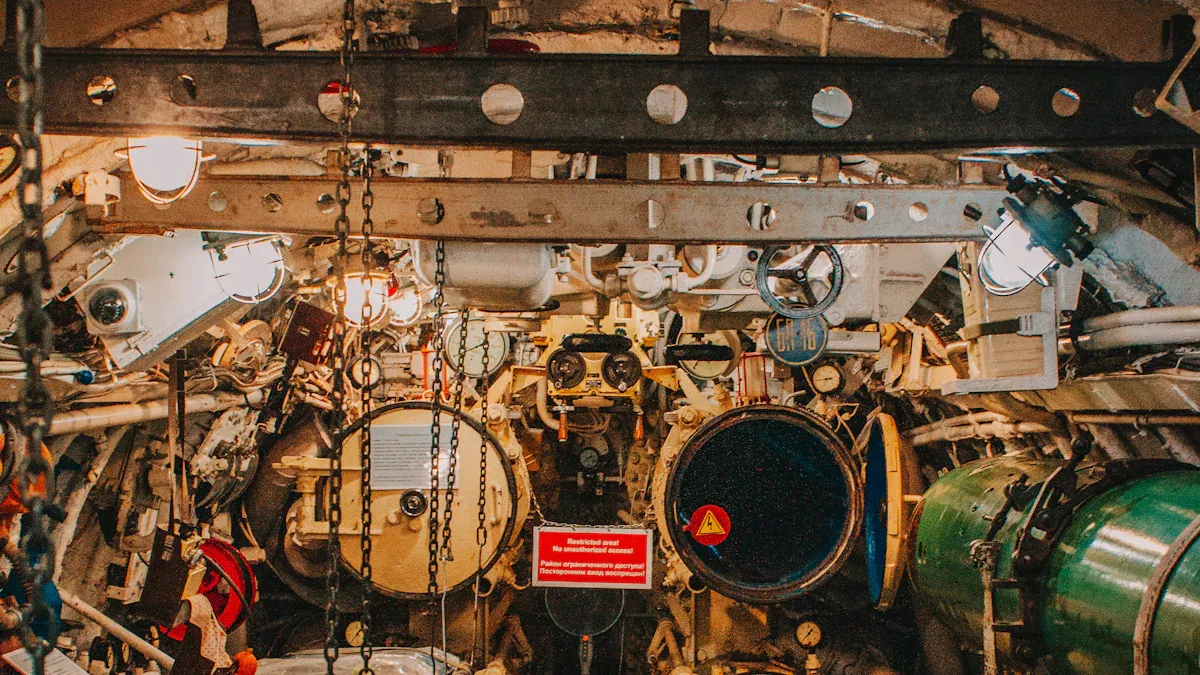
Engine Damage and Increased Costs
Neglecting oil purification systems on ships can lead to severe engine damage and skyrocketing costs. Contaminants like water, dirt, and sludge accumulate in the oil, reducing its ability to lubricate engine components. This increases friction, overheating, and wear, which can result in costly repairs or even complete engine failure.
Consider these real-life examples:
- Damaged seals in purifiers allowed impurities and water to remain in the fuel oil. This caused engine overheating and internal damage.
- Careless handling of a lube oil filter led to its disintegration. This failure severely damaged the engine’s lubrication system.
By maintaining clean oil with systems like ZANYO’s Oil Purifier, you can avoid these costly scenarios. Investing in purification systems ensures your engine operates smoothly, saving you from unexpected expenses.
Non-Compliance with Regulations
Maritime regulations require ships to meet strict standards for oil quality and waste management. Without proper oil purification, your ship risks non-compliance. This can result in hefty fines, detentions, or even bans from operating in certain regions.
For example, failing to remove contaminants from oil can lead to improper waste disposal. Regulatory bodies impose severe penalties for such violations. By using oil purification systems, you ensure compliance with international standards and avoid legal troubles. These systems also demonstrate your commitment to responsible shipping practices.
Environmental and Safety Risks
Neglecting oil purification systems poses significant environmental and safety risks. Contaminated oil can leak into the ocean, harming marine life and ecosystems. Additionally, poor oil quality increases the likelihood of engine malfunctions, which can lead to accidents at sea.
Oil purification systems on ships reduce these risks by maintaining clean oil and preventing leaks. ZANYO’s advanced technology helps you minimize hazardous waste and protect the environment. By prioritizing purification, you contribute to safer and more sustainable maritime operations.
Tip: Regular maintenance of your oil purification system ensures long-term reliability and environmental compliance.
Oil purification systems on ships are essential for maintaining smooth operations. These systems ensure cleaner oil, which protects engines, reduces maintenance costs, and supports compliance with maritime regulations.
Here’s why you should prioritize them:
- They prevent engine damage by removing harmful contaminants.
- They lower operational costs by extending oil life.
- They help you meet environmental standards.
With ZANYO’s Oil Purifier, you can achieve reliable performance and sustainable shipping practices. Neglecting these systems risks engine failure, fines, and environmental harm. Choose wisely to safeguard your ship’s future.
What Oil Purification Systems Do
Oil purification systems are designed to keep your ship’s engine oil clean and efficient. These systems remove harmful contaminants like dirt, water, and sludge that accumulate during engine operation. By doing so, they ensure the oil maintains its lubricating properties, which is critical for engine performance.
You’ll find that these systems also extend the life of your engine oil. Instead of frequent oil changes, you can rely on purification to maintain oil quality over longer intervals. This reduces waste and saves money. For example, ZANYO’s Oil Purifier helps ships achieve cleaner oil, leading to fewer maintenance interruptions and improved operational efficiency.
How Oil Purification Systems Work
Oil purification systems use advanced methods to separate contaminants from the oil. Here’s a breakdown of the key processes:
| Method | Description |
|---|---|
| Centrifugation | High-speed centrifugal force separates contaminants based on density. |
| Filtration | Oil passes through filters to trap solid particles. |
| Coalescence | Small water droplets combine into larger ones, making them easier to remove from the oil. |
Each method plays a unique role in ensuring your engine oil stays clean. For instance:
- Centrifugal oil separators efficiently remove soot and other particles. They collect debris on a removable insert, making cleaning simple and cost-effective.
- Bypass oil filtration eliminates nearly all contaminants without disrupting engine operation. This process removes even the smallest particles, ensuring cleaner oil and longer drain intervals.
By combining these techniques, oil purification systems deliver a continual cleaning process. This keeps your engine oil in optimal condition, reducing wear and tear on critical components.
Benefits of Oil Purification Systems
Prolonging Engine Life
Oil purification systems play a crucial role in extending the lifespan of your ship’s engine. Contaminants like dirt, water, and sludge can cause significant wear and tear on engine components. By removing these impurities, these systems ensure that the oil retains its lubricating properties, reducing friction and preventing damage. Clean oil minimizes the risk of corrosion and overheating, which are common causes of engine failure.
Using ZANYO’s Oil Purifier, you can achieve cleaner oil, which helps hydraulic components last up to ten times longer. This not only reduces the frequency of repairs but also lowers the overall maintenance costs. Prolonging engine life means fewer disruptions to operations and more reliable performance at sea.
Enhancing Fuel Efficiency
Efficient fuel usage is vital for reducing operational costs and environmental impact. Oil purification systems contribute to this by maintaining the quality of the oil, which ensures optimal engine performance. A well-maintained engine consumes less fuel, saving you money and resources.
For instance:
- A waste heat recovery system on a container vessel can save approximately 100 tonnes of fuel oil annually.
- This translates to a reduction of about 300 tonnes in CO2 emissions each year.
- Operators using heavy fuel oil (HFO) can save up to USD 60,000 annually.
By integrating oil purification systems into your ship’s operations, you not only enhance fuel efficiency but also contribute to a greener maritime industry.
Ensuring Environmental Compliance
Maritime regulations demand strict adherence to environmental standards. Oil purification systems help you meet these requirements by reducing hazardous waste and preventing oil contamination in the ocean. Improper disposal of used oil can lead to severe penalties and environmental damage.
These systems drastically cut hazardous waste production by enabling the reuse of oil. This reduces the need for frequent oil changes and minimizes the risk of spills. With ZANYO’s advanced technology, you can ensure compliance with international maritime standards while protecting marine ecosystems.
By investing in oil purification systems, you demonstrate a commitment to sustainability and responsible shipping practices.
Consequences of Neglecting Oil Purification Systems
Engine Damage and Increased Costs
Neglecting oil purification systems on ships can lead to severe engine damage and skyrocketing costs. Contaminants like water, dirt, and sludge accumulate in the oil, reducing its ability to lubricate engine components. This increases friction, overheating, and wear, which can result in costly repairs or even complete engine failure.
Consider these real-life examples:
- Damaged seals in purifiers allowed impurities and water to remain in the fuel oil. This caused engine overheating and internal damage.
- Careless handling of a lube oil filter led to its disintegration. This failure severely damaged the engine’s lubrication system.
By maintaining clean oil with systems like ZANYO’s Oil Purifier, you can avoid these costly scenarios. Investing in purification systems ensures your engine operates smoothly, saving you from unexpected expenses.
Non-Compliance with Regulations
Maritime regulations require ships to meet strict standards for oil quality and waste management. Without proper oil purification, your ship risks non-compliance. This can result in hefty fines, detentions, or even bans from operating in certain regions.
For example, failing to remove contaminants from oil can lead to improper waste disposal. Regulatory bodies impose severe penalties for such violations. By using oil purification systems, you ensure compliance with international standards and avoid legal troubles. These systems also demonstrate your commitment to responsible shipping practices.
Environmental and Safety Risks
Neglecting oil purification systems poses significant environmental and safety risks. Contaminated oil can leak into the ocean, harming marine life and ecosystems. Additionally, poor oil quality increases the likelihood of engine malfunctions, which can lead to accidents at sea.
Oil purification systems on ships reduce these risks by maintaining clean oil and preventing leaks. ZANYO’s advanced technology helps you minimize hazardous waste and protect the environment. By prioritizing purification, you contribute to safer and more sustainable maritime operations.
Tip: Regular maintenance of your oil purification system ensures long-term reliability and environmental compliance.
Oil purification systems on ships are essential for maintaining smooth operations. These systems ensure cleaner oil, which protects engines, reduces maintenance costs, and supports compliance with maritime regulations.
Here’s why you should prioritize them:
- They prevent engine damage by removing harmful contaminants.
- They lower operational costs by extending oil life.
- They help you meet environmental standards.
With ZANYO’s Oil Purifier, you can achieve reliable performance and sustainable shipping practices. Neglecting these systems risks engine failure, fines, and environmental harm. Choose wisely to safeguard your ship’s future.

